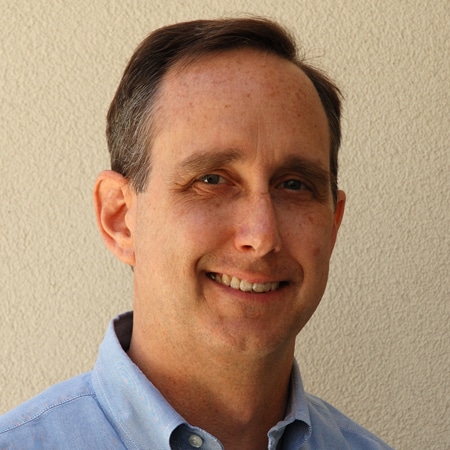Log in or create a free Rosenverse account to watch this video.
Log in Create free account100s of community videos are available to free members. Conference talks are generally available to Gold members.
Summary
As a first approximation, many designers describe what they do as "problem-solving." This frame arose in the context of the industrial revolution, in early days of professional design. "Problem-solving" casts designers as objective experts, delivering the right answer. However, reality is messy; many answers might suffice — or none. "Problems" are not separate and clearly bounded; rather, they are deeply intertwined. As the information revolution increases scale and shifts the focus of designing to complex adaptive systems, problem-solving increasingly misses the mark; design needs a new frame.
Key Insights
-
•
Design’s traditional framing as problem solving, rooted in industrial manufacturing, is outdated for current digital, AI-driven systems.
-
•
Modern design is about creating conditions for systems to grow, learn, and adapt rather than delivering a finished solution.
-
•
Wicked problems are better understood as ongoing messes or tangles without fixed solutions or consensus frames.
-
•
Technological advances such as sensors, cloud computing, smart connected products, AI, and digital twins enable new forms of continuous system management.
-
•
Digital twins serve as dynamic, scalable replicas of objects or systems facilitating real-time monitoring, control, experimentation, and adaptation.
-
•
Organizations are evolving along a learning curve from data aware to autonomous, self-driving entities that optimize and automate operations.
-
•
Design roles are shifting from experts and solvers to facilitators and collaborators, enabling decentralized design and meta-design.
-
•
Systems design requires balancing fast-changing layers (commerce, technology) with slow layers (culture, nature), as per Stuart Brand’s pace layers concept.
-
•
Designers now must work with complexity, uncertainty, and ongoing evolution, supporting good-enough solutions and adaptability over perfection.
-
•
The interplay of humans and AI-driven systems raises ethical, political, and governance issues demanding stewardship rather than pure problem solving.
Notable Quotes
"Designers often describe what we do as problem solving and I think that’s fine but it’s tied to a 19th century manufacturing metaphor."
"You don’t think of raising a child as solving a problem; it’s an ongoing process—and that’s how we should see design today."
"Wicked problems have shifting definitions and you can’t really call them problems—they are messes or tangles."
"Every 10 to 15 years a new wave of technology transforms business—now it’s AI powered by massive data and digital twins."
"Digital twins can empower individuals and manage entire populations simultaneously—it’s about small scale and large scale replication."
"The future of design is complexity and computation—moving from objects to complex adaptive systems."
"Designers are no longer central planners but participants, facilitators creating conditions for systems to thrive and adapt."
"Corporations are already largely self-driving, often in a bad way, running on autopilot by virtue of policies."
"Design is not a purely scientific or objective activity, it’s firmly within the realm of politics and values."
"Steve Jobs said design is the fundamental soul of a man-made creation, not just veneer or decoration."
Or choose a question:














More Videos

"Burnout really exists because we made rest a reward rather than a right."
Zariah CameronReDesigning Wellbeing for Equitable Care in the Workplace
September 23, 2024

"Your top priority doesn’t have to be the thing you choose, but it tells you what’s important to you."
John Cutler Harry MaxPrioritization for designers and product managers (1st of 3 seminars) (Videoconference)
June 13, 2024

"As leaders, don’t make it about you—put the spotlight on the people doing great work."
Nick CochranGrowing in Enterprise Design through Making Connections
June 3, 2019

"Sometimes it’s easier to pitch a change with a smaller group rather than rolling it out to everyone at once."
Deanna SmithLeading Change with Confidence: Strategies for Optimizing Your Process
September 23, 2024

"We’re now looking to help legislators think about digital outcomes as they draft new laws and regulations."
Magdalena ZadaraZero Hour: How to Get Far Quickly When Starting Your Digital Service Unit Late
November 16, 2022

"The designers were taking a part of their job away, and it was something the developers really loved."
Nova Wehman-BrownWe've Never Done This Before
June 4, 2019

"By identifying the triggers that lead customers to ask questions, I was able to help data scientists figure out what training data to access and explore."
Liwei DaiThe Heart and Brain of the AI Research
March 31, 2020

"The Digital Response Unit was a source of situational awareness and air traffic control within the flurry of daily COVID case counts and policy decisions."
Gordon Ross12 Months of COVID-19 Design and Digital Response with the British Columbia Government
December 8, 2021

"We use design thinking to make north stars for products; I help people find their north stars."
Tutti TaygerlyMake Space to Lead
June 12, 2021
















